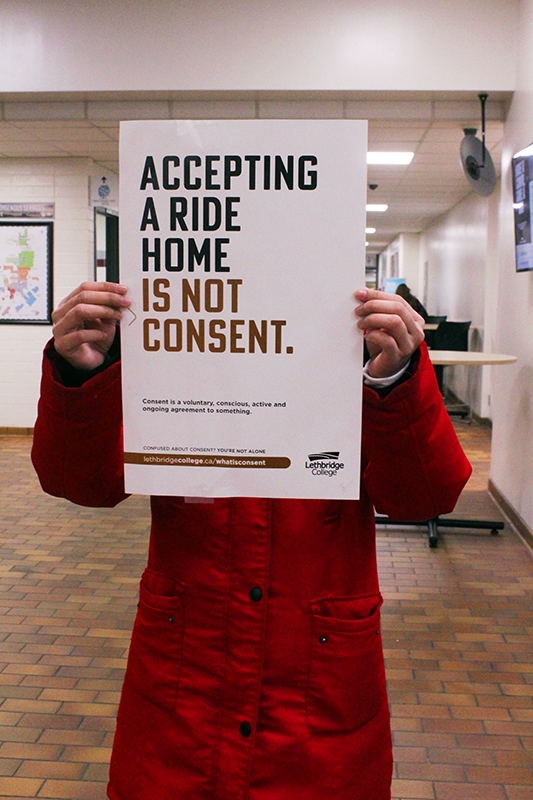Student in protest about the many different assaults that happen to women that go unlooked or ignored.
There is so much that contributes to our mental health- how we were raised, our social support and how we have learned to deal with stress in the present. There are also biological factors, like how our brains are wired, genetics and our family history. Then different life experiences impact our mental health, such as abuse and trauma. One of the greatest traumatic events that many individuals have to overcome is sexual assault and rape.
The difference between sexual assault and rape is that sexual assault includes someone sexually touching your body of any kind that is unwanted or forced, including kissing or groping or forcing a victim to perform sexual acts, such as oral sex and attempted rape. Whereas rape is sexual intercourse or other forms of sexual penetration carried out against a person without their consent or knowledge. But these are mostly interchangeable these days, with sexual assault being the preferred phrase being the sexual assault, as it does include rape.
Tarzia, Thuraisingam, and Novy, explored the relationships between sexual violence and mental health in an Australian primary care study, BMC Public Health in December 2018. They limited their research and results to the depression, anxiety and post-traumatic stress linked with sexual assault. They interviewed 306 women in their study.
Approximately 41 per cent of participants had experienced some form of sexual assault since the age of 14 and 23 per cent had experienced it in the past 12 months. There were 38 per cent had never experienced rape or sexual assault.
The biggest thing they got from this study was that women who had experienced sexual assault and rape had significantly higher PTSD, depression, anxiety, substance use disorders and eating disorders scores than women with no experience of sexual assault.
Brooke Bagley, a counsellor who began in 2013 and is now a supervisor at the Sexual Assault Center of East Tennessee says she has found many different tactics that help the mental health of her sexual assault patients.
“I ask clients to walk me through a recent trauma-related episode, having them focus on what they felt bodily versus emotionally or cognitively. Many clients report feeling pain behind the eyes and many feelings of anxiety. Some clients become physically numb and feel no sensation — much like physical denial. A common practice I use for working with this trauma response is based on mindfulness. I encourage clients to engage all five of their physiological senses by directing them to smell, touch, taste, listen to and focus visually in their space. Once this senses-based intervention has been practiced within the therapeutic office, I encourage clients to continue using this intervention at home.”
This is one of many different approaches to supporting those who have been sexually assaulted.
There was 10.5 per cent of Lethbridge college students who experienced a form of sexual violence during and before being at the College, according to a survey of the student body regarding consent.
One Lethbridge College student who wanted to remain anonymous was 15 when she was raped. She admits she had mental health troubles after the incident, in school, with her family and friends.
“I never told my parents or the police because I was scared. I never went to therapy after the incident. I got in trouble because my family and teachers didn’t understand what was wrong. I couldn’t be alone in a room with any male, not even my dad or stepdad. I only found solace in getting it off my chest by talking to my peers.”
She now encourages people to go to therapy. She helps others who have been assaulted or raped to get through their emotions. Unfortunately, after five years, she said she hasn’t healed yet.
Canadian Women’s Studies presented a study in June of 2022. Out of the approximately 4.7 million women that live in Canada, 30 per cent of all women aged 14 and older have been sexually assaulted outside of an intimate relationship. This does not include the statistics from sexually assaulted victims in intimate relationships.
With sexual assault numbers rising as more women report their experiences, it is important to know how to support the mental health of victims. Here are some things you can do to help yourself heal. An article by Amy Morin, posted on August 29, 2o22 with Very Well Mind says it’s important to calm your body with soothing activities like yoga and light exercise You have to also face your fear. By having a trusted therapist who can help you find a coping strategy.
It is important to know that you’re not alone and there are many resources in your community that can help with anything you’ve been through. It is very important to talk to anyone and to know that nothing is your fault. We believe you. If you’ve experienced rape or sexual assault, please call 1-866-296-0477 to speak with a sexual assault and rape specialist from the YWCA.



